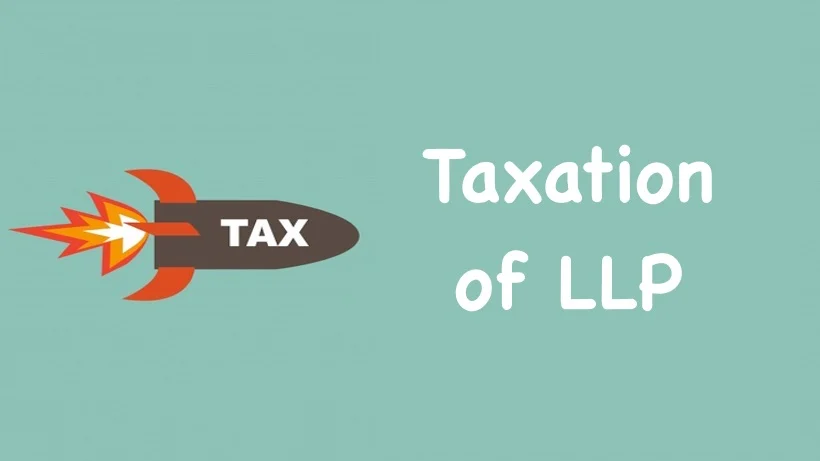User Intent
Users searching for “LLP tax rate in India” are likely business owners, financial professionals, or entrepreneurs looking to understand the tax implications of a Limited Liability Partnership (LLP) in India. This guide provides an in-depth overview, including tax rates, benefits, limitations, and a comparative analysis to help businesses make informed decisions.
Introduction
Taxation is a crucial aspect of any business structure, and LLPs are no exception. The Indian tax system treats LLPs differently from companies, making it essential to understand the applicable tax rates and compliance requirements. Unlike private limited companies, LLPs benefit from a flat tax rate and are exempt from dividend distribution tax (DDT). This article breaks down the LLP tax rate, its applicability, benefits, and limitations, ensuring you have all the necessary information in one place.
Definition of LLP Tax Rate
A Limited Liability Partnership (LLP) is a hybrid business structure combining the flexibility of a partnership with the limited liability of a company. The tax rate applicable to LLPs in India is a flat 30% on their total income, with an additional surcharge and cess as per government regulations.
Application of LLP Tax Rate in India
1. Basic Tax Rate
LLPs in India are taxed at a flat rate of 30% on their total income.
2. Surcharge
- If the total income exceeds INR 1 crore, a surcharge of 12% is applicable.
- No surcharge applies for LLPs with income below INR 1 crore.
3. Health and Education Cess
- A 4% Health and Education Cess is applicable on the total tax and surcharge amount.
4. Alternative Minimum Tax (AMT)
- LLPs must pay 18.5% as Alternative Minimum Tax (AMT) if their tax liability is lower than the AMT threshold.
- A surcharge and cess also apply to AMT calculations.
5. Presumptive Taxation for LLPs
- LLPs with turnover up to INR 2 crore can opt for presumptive taxation under Section 44ADA, where 50% of the total receipts are considered taxable income.
6. Tax Deducted at Source (TDS) Applicability
- LLPs must deduct TDS while making payments such as professional fees, rent, and contractor payments, following the Income Tax Act provisions.
To visit https://www.mca.gov.in
Benefits of LLP Taxation
1. No Dividend Distribution Tax (DDT)
Unlike companies, LLPs are not required to pay Dividend Distribution Tax (DDT) on profits distributed to partners.
2. Lower Compliance Burden
LLPs enjoy less compliance and regulatory burden compared to private limited companies, making taxation easier to manage.
3. Taxation at Partner Level Avoided
The income of an LLP is taxed only at the LLP level. Partners are not subject to separate taxation on LLP profits.
4. Flexibility in Profit Sharing
Taxation does not impact the profit-sharing ratio, allowing LLPs to distribute earnings efficiently among partners.
5. Tax Benefits under Various Sections
LLPs can avail deductions under Section 80 for certain business expenses and investments, reducing their overall tax liability.
Limitations of LLP Taxation
1. Higher Tax Rate Than Some Companies
- While LLPs are taxed at 30%, domestic companies with turnover up to INR 400 crore enjoy a lower tax rate of 22% (with conditions).
2. No Access to Startup Tax Benefits
- Unlike private limited companies, LLPs do not qualify for tax exemptions under the Startup India scheme.
3. Applicability of Alternative Minimum Tax (AMT)
- LLPs must pay AMT at 18.5%, which is not applicable to small companies under certain conditions.
4. Limited Funding Opportunities
- Investors and venture capitalists prefer companies over LLPs due to equity funding constraints and taxation policies.
Comparative Table: LLP Tax Rate vs. Company Tax Rate
| Aspect | LLP Tax Rate | Private Limited Company Tax Rate |
|---|---|---|
| Basic Tax Rate | 30% | 22% (with conditions) |
| Surcharge | 12% (if income > INR 1 Cr) | 10% (if income > INR 1 Cr) |
| Health & Education Cess | 4% | 4% |
| Dividend Tax | No | 20% on dividends |
| AMT Applicability | Yes (18.5%) | No (under certain conditions) |
| Startup Tax Benefits | No | Yes (subject to eligibility) |
| Compliance Burden | Low | High |
Conclusion
Understanding the LLP tax rate in India is essential for businesses deciding on the right structure. While LLPs offer benefits such as no DDT, lower compliance, and direct profit distribution, they also have higher tax rates compared to some companies and fewer tax exemptions. Before choosing LLP as your business structure, consider the tax implications and long-term financial goals. Consulting a tax expert can help optimize tax liability and ensure compliance with Indian taxation laws.
FAQs
1. What is the current LLP tax rate in India?
The LLP tax rate in India is 30% on total income, plus surcharge and cess where applicable.
2. Do LLPs have to pay Dividend Distribution Tax (DDT)?
No, LLPs do not pay DDT when distributing profits to partners.
3. Is GST applicable to LLPs in India?
Yes, LLPs must register for GST if their turnover exceeds INR 20 lakh (services) or INR 40 lakh (goods).
4. Do LLPs qualify for startup tax exemptions?
No, LLPs do not get tax exemptions under the Startup India scheme.
5. Can LLPs opt for presumptive taxation?
Yes, LLPs with turnover up to INR 2 crore can opt for presumptive taxation under Section 44ADA.
6. Is LLP tax higher than private limited company tax?
Yes, LLPs are taxed at 30%, whereas private limited companies may be taxed at a lower 22% (with conditions).
For further details access our website https://vibrantfinserv.com

